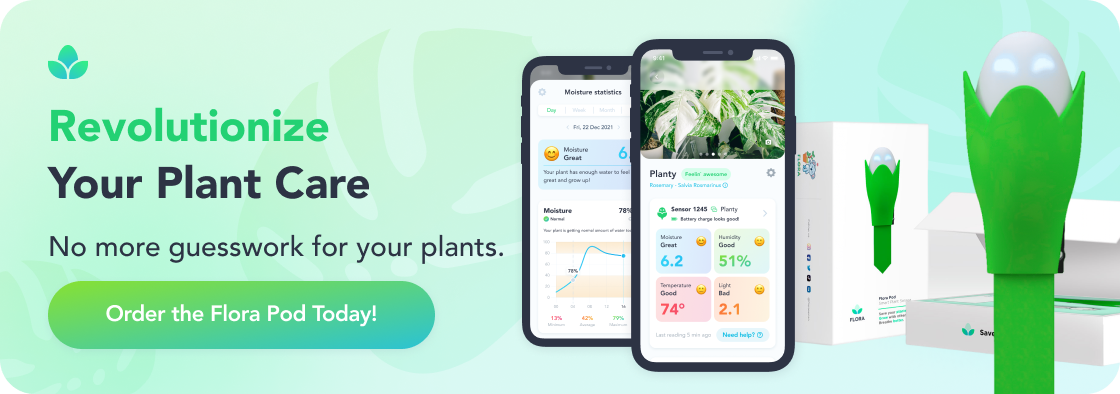Fronds or Foes: Boston Fern Toxicity

Boston ferns (Nephrolepis exaltata) are popular indoor plants known for their lush, arching fronds that add a touch of greenery to any space. However, if you are a pet owner, you might be concerned about the safety of having Boston ferns in your home. Understanding the toxicity of plants is crucial to ensuring the well-being of your furry friends. So, let's explore the topic of Boston fern toxicity and answer some key questions: Is the Boston fern toxic to pets? Are Boston ferns toxic to cats or dogs?
What is Boston Fern Toxicity?
Boston fern toxicity refers to the potential harmful effects that the plant might have if ingested by pets or humans. However, the good news for plant enthusiasts and pet owners alike is that Boston ferns are generally considered non-toxic. This means they are safe to have around dogs, cats, and other pets. Despite this, it’s essential to understand what "non-toxic" truly means and how to ensure your pets stay safe around your plants.
Are Boston Ferns Toxic to Pets?

Many indoor plants can be hazardous to pets, causing symptoms that range from mild stomach upset to severe poisoning. In some cases, ingestion of toxic plants can lead to symptoms such as vomiting, diarrhea, lethargy, drooling, and even more serious conditions like organ failure. For example, popular plants like lilies, sago palms, and philodendrons are known to be highly toxic to pets, particularly cats and dogs. Because of this, pet owners must be vigilant in selecting houseplants that are safe for their furry companions.
Fortunately, Boston ferns do not fall into the toxic category, making them a much safer option for households with pets. According to the ASPCA (American Society for the Prevention of Cruelty to Animals), Boston ferns are specifically listed as non-toxic to both cats and dogs. This characteristic makes Boston ferns an excellent choice for those who want to enjoy the beauty of houseplants without worrying about the health and safety of their pets.
However, even though Boston ferns are non-toxic, it’s still crucial to monitor your pets' interactions with these plants. Pets, especially young ones, may be tempted to chew on the fronds out of curiosity or as a way to relieve boredom. While this behavior typically does not result in serious harm, it can lead to minor issues such as gastrointestinal discomfort or, in more extreme cases, a choking hazard if large pieces are ingested. Additionally, frequent chewing on the fern's fronds can damage the plant, leading to unattractive and unhealthy foliage.
To minimize the risk of your pets chewing on your Boston fern, it’s important to provide them with alternative forms of entertainment and enrichment. This can include offering them a variety of toys, engaging them in interactive play, and ensuring they have safe chew alternatives available. For cats, consider providing cat-friendly plants such as cat grass or catnip, which can satisfy their need to chew while keeping your Boston fern intact. For dogs, providing appropriate chew toys and regularly engaging in play can help divert their attention away from your plants.
Are Boston Ferns Toxic to Cats?
Cats are notorious for their love of exploring and nibbling on houseplants. For cat owners, it’s a relief to know that Boston ferns are not toxic to cats. If your cat happens to take a bite out of a Boston fern, there is no need to panic. Unlike more dangerous plants such as lilies or philodendrons, Boston ferns will not cause serious harm to your feline friend.
Nevertheless, it is worth considering why your cat might be attracted to your plants. Cats may chew on plants to fulfill a nutritional deficiency, out of boredom, or to help with digestion. Providing safe, cat-friendly grasses or catnip can satisfy this need and divert their attention away from your Boston fern.
Are Boston Ferns Toxic to Dogs?
Just like with cats, Boston ferns are safe for dogs as well. Whether your dog is large or small, a Boston fern in your home should not pose any significant health risks. However, dogs can also be prone to chewing on plants, especially when they are young and teething.
If you find that your dog is chewing on your Boston fern, it might be beneficial to train them to avoid the plant. Positive reinforcement techniques can be effective, such as rewarding your dog with treats or toys when they steer clear of the fern. Additionally, keeping the plant out of your dog's reach can prevent any accidental ingestion.
Ensuring Plant Safety in Pet-Friendly Homes
While Boston ferns are non-toxic, it is still essential to practice good plant safety habits in homes with pets. Here are some tips to help keep your plants and pets safe:
Choose Non-Toxic Plants: When selecting plants for your home, always check if they are safe for pets. There are many beautiful, pet-friendly plants to choose from, including Boston ferns, spider plants, and areca palms.
Place Plants Strategically: Consider placing your plants in locations that are difficult for your pets to reach. Hanging baskets or high shelves can keep plants out of reach while still allowing them to thrive in your home.
Provide Distractions: Ensure your pets have plenty of toys and other distractions to keep them entertained. This can reduce their curiosity and prevent them from chewing on your plants.
Use Repellents: Some pet owners use natural repellents, such as citrus peels or diluted vinegar, around their plants to deter pets from getting too close. Be sure to test these methods in a small area first to ensure they do not harm the plant.
Monitor Your Pets: Keep an eye on your pets, especially when introducing a new plant to your home. Monitor their behavior to ensure they do not develop a habit of chewing on your Boston fern or other plants.
Why Boston Ferns Are an Ideal Choice for Pet Owners
Beyond their non-toxic nature, Boston ferns offer several benefits that make them a great addition to any pet-friendly home. These ferns are known for their ability to purify the air by removing pollutants such as formaldehyde, xylene, and toluene. This can contribute to a healthier living environment for both you and your pets.
Moreover, Boston ferns thrive in humid conditions and can be a beautiful, lush addition to bathrooms or other moist areas of your home. Their aesthetic appeal, combined with their safety for pets, makes them an excellent choice for plant lovers who also care for animals.
In conclusion, Boston ferns are not only safe but also beneficial additions to pet-friendly households. They pose no toxic risk to your cats or dogs, making them an ideal plant choice for anyone who loves both greenery and animals. By understanding the non-toxic nature of Boston ferns and taking simple precautions, you can enjoy the beauty of these plants without worrying about the safety of your furry friends. As always, maintaining a balance between your pets' well-being and your love for houseplants will ensure a harmonious living space for everyone.
Fern's Leafy Learnings
Boston ferns are non-toxic to both cats and dogs, making them a safe choice for pet-friendly homes.
Despite being non-toxic, pets may still chew on Boston ferns out of curiosity or boredom, so monitor their interactions.
Cats may chew on plants for nutritional needs or boredom; offering cat-friendly grasses can help.
Dogs, especially when young, might chew on plants during teething; positive reinforcement can train them to avoid this behavior.
Boston ferns also help purify indoor air, benefiting both you and your pets by creating a healthier environment.
Deepen Your Roots with Flora
At Flora, we not only bring you a vibrant selection of locally sourced, rare, and delightful plants, but we also serve as your continuous guide in your plant parenting voyage, ensuring every leaf in your sanctuary thrives. With our Flora Pod™ technology and a nurturing community of over 250,000 plant lovers, we cultivate a space where every plant parent - novice or expert - can blossom.
We propagate with a commitment to sustainability, connection, and ceaseless growth, fostering a community where each member, and their plants, are cherished and nurtured.
Crave a lush, thriving green space? Adopt a plant from Flora today!
Flora Pod™ is featured on Shark Tank!

5 Signs Your Houseplant Needs Repotting Now
Mar 02, 2026
6 Anthurium Benefits You Didn't Know About
Mar 02, 2026

How to Prune Your Houseplants Before Spring Growth Season
Mar 02, 2026

10 Best Houseplants for Spring Repotting Success
Mar 02, 2026

Can ZZ Plants Survive in Low Light Conditions?
Mar 02, 2026

5 Critical Pre-Spring Pruning Tips for Houseplants
Mar 02, 2026

Can Succulents Survive Winter Outdoors in Your Climate Zone?
Mar 02, 2026

Which Houseplants Are Toxic to Cats and Should You Avoid Them?
Mar 02, 2026




